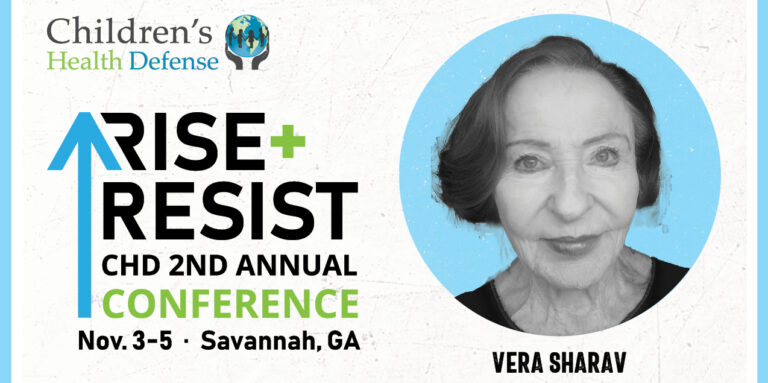UK to crack down further on antidepressants given out ‘like sweets’
UK to crack down further on antidepressants given out ‘like sweets’
Tue, 21 Oct 2003
The British government is cracking down on reckless overprescribing of antidepression drugs (SSRIs) which are depleting public healthcare budgets. The Times (UK) reports that the National Institute for Clinical Excellence (NICE), the British government agency that decides which drugs should be available through the National Health Service, will advise doctors that:
“antidepressants should no longer be used as a first-line treatment” for mildly depressed people. The new NICE recommendations suggest that “people with mild depression often respond to simple interventions, such as exercise or self-help…”
SSRIs have not proven of greater benefit in clinical trials than placebo. Physicians and the public have been deluded by false advertising claims. The drugs’ serious adverse side effects and risks of harm have been concealed until recently.
Drug manufacturers have been marketing SSRIs recklessly “like sweets.” The Times reports that the antidepressant Remeron (Zispin /Mirtazpine) is available in an orange-flavoured version that “melts in the mouth.” The ad promises: “The orange-flavored tablet disintegrates on your tongue in less than 30 seconds.” See: http://www.online-prescriptiondrugs.com/remeron.shtml
http://www.timesonline.co.uk/newspaper/0,,170-861069,00.html
October 20, 2003
Crackdown on antidepressants given out ‘like sweets’ By Oliver Wright, Health Correspondent
BRITAIN is becoming a nation kept artificially happy by pills, with doctors handing out eight million more prescriptions for depression, anxiety and stress than five years ago.
About two million people are estimated to be taking antidepressants every year, costing the NHS £380 million, according to government figures. Amid fears that doctors are prescribing drugs for the normal problems of life, The Times has learnt that the Government is to advise them that antidepressants should no longer be used as a first-line treatment in such cases.
Recent trials showed almost no clinical difference between antidepressants and placebos in the treatment of mild depression.
Department of Health statistics show that the number of prescriptions for all types of antidepressants in England rose from 10.8 million in 1993 to 26.6 million last year. Over that period the health service increased spending on the drugs from £100 million to £381 million.
Almost all the increase has been in a new class of antidepressants known as SSRIs, which include Prozac and Seroxat. In 1992, 500,000 prescriptions were made for SSRIs. Last year the figure was 15 million.
Mental health experts say that the rise is partly because of an increased awareness of depression among GPs and waits of up to a year for counselling services, which could be offered as an alternative.
However, there are also concerns that antidepressants have become lifestyle drugs, promoted by the media, and handed out “like sweets” to patients. The antidepressant Zispin was made available this month in an orange-flavoured version that melts in the mouth.
Many patients are also unaware of the potential side-effects of such “wonder drugs” as Prozac and Seroxat. The latter was recently withdrawn for people under 18 after it emerged that it had been linked to suicide. The listed side-effects of Prozac include nausea, diarrhoea and muscle spasms.
Andrew McCulloch, head of the Mental Health Foundation, said that SSRIs were better than the previous generation of antidepressants but still needed to be treated with care. “There is no doubt that we are reaching many more people suffering from depression than we did before, and that is a very good thing,” he said.
“But on the negative side some GPs are becoming trigger happy and giving patients a prescription to make them go away. There is a danger that if people think a pill is the solution they will not tackle real underlying problems which could be better treated by something like cognitive behavioural therapy.” The National Institute for Clinical Excellence, the government agency that decides which drugs should be available on the NHS, says in new recommendations that people with mild depression often respond to simple interventions, such as exercise or self-help…”
_________________________________________________________________
FAIR USE NOTICE: This may contain copyrighted (© ) material the use of which has not always been specifically authorized by the copyright owner. Such material is made available to advance understanding of ecological, political, human rights, economic, democracy, scientific, moral, ethical, and social justice issues, etc. It is believed that this constitutes a ‘fair use’ of any such copyrighted material as provided for in section 107 of the US Copyright Law. In accordance with Title 17 U.S.C. Section 107, this material is distributed without profit to those who have expressed a prior general interest in receiving similar information for research and educational purposes. For more information go to: http://www.law.cornell.edu/uscode/17/107.shtml If you wish to use copyrighted material for purposes of your own that go beyond ‘fair use’, you must obtain permission from the copyright owner.

